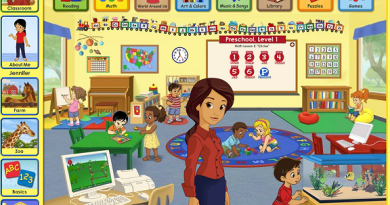5 Parenting traps you need to avoid with tech-savvy kids
Raising kids in the digital age can be tricky. As technology pervades every aspect of their lives, it becomes increasingly important to set boundaries and manage their screen time effectively. But even the best-intentioned parents can fall into common traps with tech-savvy kids. Here are five traps you need to avoid if you want to raise a well-adjusted child in the digital age.
1. Don’t use tech as a babysitter
Many parents of tech-savvy kids fall into the trap of using technology as a babysitter. While it’s true that devices can keep kids entertained for hours on end, this is not always a good thing. Too much screen time can lead to behavioural problems, sleep issues, and difficulty focusing. It’s important to strike a balance when it comes to technology use in the home. Kids should have access to devices, but they should also be encouraged to explore the world around them and to interact with family and friends. By taking a more active role in their child’s tech use, parents can help ensure that their kids are getting the most out of their device time.
2. Don’t be a helicopter parent
There’s no doubt that parenting can be a tough gig, especially when it comes to raising kids in the digital age. With so much technology at their fingertips, it’s easy for parents to feel like they need to be constantly hovering over their kids to make sure they’re stay safe online. However, this helicopter parenting approach can actually do more harm than good. For one thing, it can create a sense of mistrust between parent and child. Additionally, it can prevent kids from developing the skills they need to navigate the online world independently. So instead of hovering, try to take a more hands-off approach with your tech-savvy kids. Encourage them to explore the online world under your supervision and help them develop the skills they need to stay safe and responsible when you’re not around. With a little trust and guidance, your kids will be just fine – and you might even find that you have a little more free time on your hands.
3. Don’t buy them every new gadget that comes out
Parenting can be tough, and it’s easy to fall into traps. One of the biggest traps is buying your kids every new gadget that comes out. It’s tempting to do, especially if your kids are tech-savvy and always asking for the latest and greatest gadget. But it’s important to resist the urge. Not only will it break the bank, but it will also create a sense of entitlement in your kids. They’ll start to expect that they can have whatever they want, whenever they want it. So instead of giving in to their every whim, set some limits on what they can have. It’ll be good for them – and for your wallet.
4. Don’t underestimate the power of technology in your child’s life
Technology can play a big role in your child’s life – both for good and for bad. While too much screen time can lead to problems like obesity and anxiety, used in moderation, technology can actually help your child learn and grow. For example, online educational resources can give your child access to a world of knowledge that they wouldn’t otherwise have. And social media can help them connect with friends and family members who they might not otherwise see. So don’t underestimate the power of technology in your child’s life – it can be a force for good if you let it.
5. Don’t be afraid to set boundaries with technology
It’s difficult to know how to set boundaries for our children’s use of technology. We don’t want to be the “lame” parents who are always saying no, but we also don’t want to be the ones who are totally clueless about what our kids are doing online. It’s a delicate balance, and one that is made even more complicated by the fact that our kids are often more tech-savvy than we are. But there are some simple things we can do to make sure we’re setting healthy limits for our kids’ tech use. First, we need to be clear about our own values and expectations. What is appropriate for our family? What are our kids allowed to do online? Once we’re clear on our own position, it will be much easier to communicate it to our children. Second, we need to model healthy behaviour ourselves. If we’re constantly on our phones or laptops, our kids will think that’s the norm – and they’ll want to follow suit. Finally, we need to be proactive about educating ourselves on the latest trends and technologies. It’s not enough to just tell our kids not to do something – we need to be able to explain why it’s not a good idea



